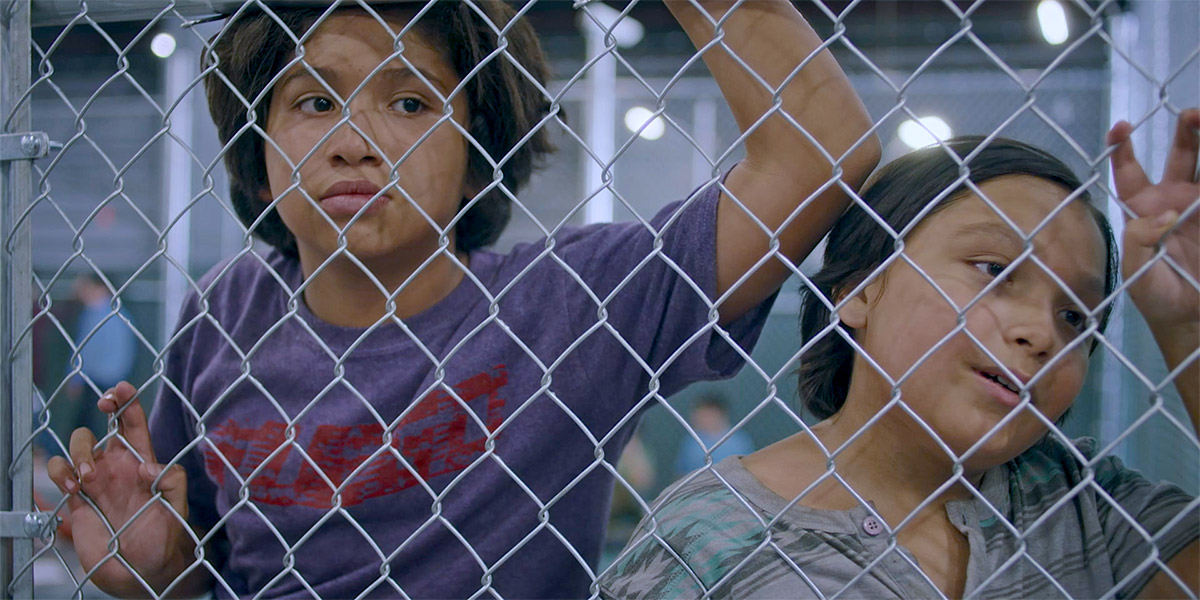Toronto Film Review: ‘Icebox’
By Joe Leydon
LOS ANGELES (Variety.com) – It’s difficult for a film to feel timelier than “Icebox,” writer-director Daniel Sawka’s precisely detailed and arrestingly spare drama about a 12-year-old Honduran boy whose desperate flight from gang violence in his homeland leads to his arrest near the U.S.-Mexican border, and subsequent incarceration in one of the several chain-link-fence cages at an immigrant detention facility.
According to an end-credits statement, Sawka — who expanded this feature from his award-winning 2016 short with the help of producer James L. Brooks — was finishing post-production work when the grim situation he depicts here turned unimaginably worse, due to Trump administration “zero-tolerance” policies that greatly diminished the ability of migrants like his movie’s protagonist to apply for asylum in the United States.
In a sense, “Icebox” represents the latest iteration of the socially conscious, torn-from-the-headlines melodramas that were a Warner Bros. specialty in the 1930s and’40s. But unlike such spiritual antecedents as, say, “Black Legion” or “I Am a Fugitive From a Chain Gang,” Sawka’s film relies on nuanced storytelling and dramatic understatement to make points and earn empathy. The cumulative impact of “Icebox” may be such that it inspires outrage, but the overall tone is best described as stoic frustration, not righteous anger.
On the other hand, don’t read the above as “Eat your vegetables; they’re good for you.” There is nothing leafy green about “Icebox.”
Anthony Gonzalez, who recently voiced the lead character in the animated feature “Coco,” rises to the challenge of being on-screen almost every minute as Oscar, the young protagonist forced to more or less fly solo while maneuvering through the daunting gauntlet of the immigration system. Evincing an unforced naturalism that recalls Jean-Pierre Léaud as Antoine Doinel in “The 400 Blows,” he provides a compelling point of view for a hard-knock coming-of-age story that traces an arduous journey from desperation to resignation.
After Oscar is drafted by a local gang — when we first see him, he’s being forcibly branded with a distinctive tattoo — his parents opt to get him out of harm’s way by arranging to have him smuggled into the safety of El Norte. The boy doesn’t get very far: He is rounded up by border patrol agents shortly after he enters Arizona, and imprisoned in an “icebox” (i.e., a chain-link cage) along with other refugees his age who are awaiting hearings where immigration court judges will decide their fates.
Much of “Icebox” is set inside the immigration center, where Oscar divides his time between repeatedly attempting to call his uncle, the only person he knows in America, and warily interacting with other young detainees. Sawka smartly eschews clichés and stereotypes — the guards are demandingly harsh but not sadistically brutish, and there isn’t a single bully among the other inmates — without at all diminishing the frightfulness of the situation.
Oscar speaks relatively little English, and understands even less about the legal quagmire in which he is caught. Each time he is unable to reach his uncle, his anxiety ratchets up a notch. (Only gradually does it become clear that his uncle has a justifiable paranoia about being anywhere near la migra.) Fortuitously, Oscar finds a friend in Rafael (winningly played by Matthew Moreno), a precocious sharpie who can’t quite disguise his own fears. Rafael fills a role as Oscar’s wise-beyond-his-years younger brother, joking about the pros and cons of female inmates in their facility — “I like American girls better, like Taylor Swift!” — and coaching Oscar in the fine art of looking suitably abject and terrified before an immigration court judge. When the two friends are temporarily divided by an inadvertent revelation, you cannot help worrying that “Icebox” is going to take a very nasty turn.
Once again, however, Sawka avoids the obvious while propelling his story forward. Indeed, save for Oscar’s convenient encounter with a reluctantly helpful outsider, “Icebox” is markedly free of contrivances while winding its way toward a resolution that is at once emotionally satisfying and unsentimentally honest.
It may be too much to hope that people who really need to see this film, and possibly learn from it, eventually will do so. But it’s not at all unreasonable to expect “Icebox” will generate the kind of favorable press (and, yes, commentary by print and TV pundits) that often attracts audiences beyond the ranks of those already converted by zealous preaching.

